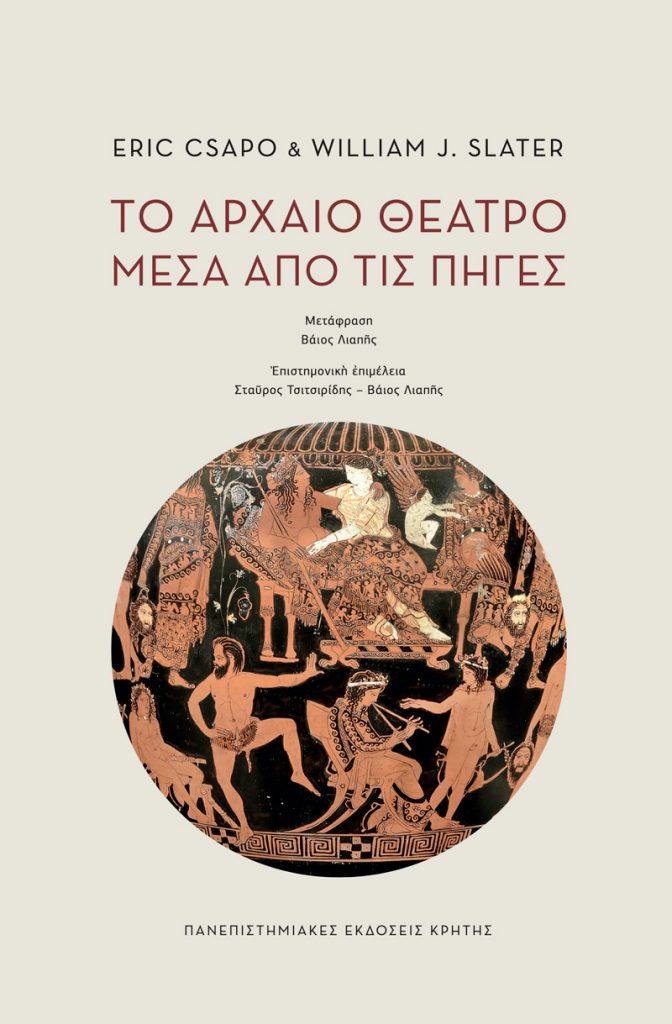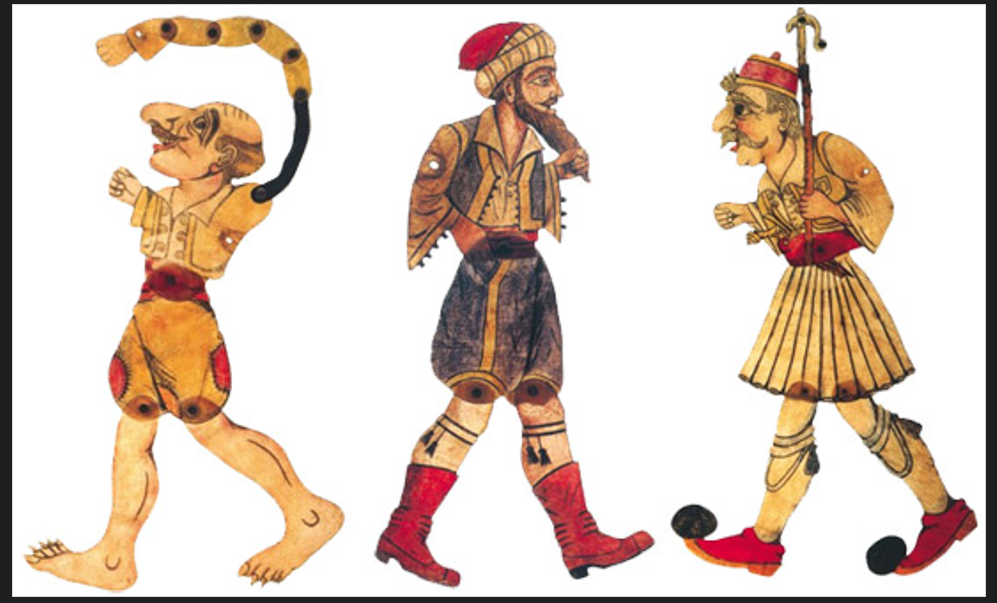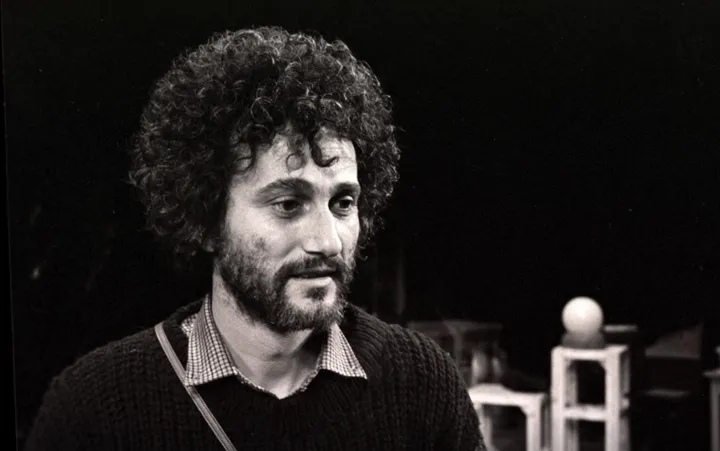Κοττ Γιαν (1914 -2001)
Ο Πολωνός πολιτικός ακτιβιστής, κριτικός, θεωρητικός του θεάτρου και θεατρικός συγγραφέας Γιαν Κοτ [Jan Kott, Βαρσοβία 27 Οκτωβρίου 1914 – Σάντα Μόνικα Καλιφόρνια, ΗΠΑ, 23 Δεκεμβρίου 2001] θεωρείται από τους πιο σπουδαίους κριτικούς της θεατρικής τέχνης του 20ού αιώνα, με σημαντική επίδραση στη διαμόρφωση της σύγχρονης σκηνοθετικής προσέγγισης του αρχαίου ελληνικού δράματος και του ελισαβετιανού θεάτρου.
Γεννήθηκε στη Βαρσοβία, από εβραϊκή οικογένεια, αλλά βαφτίστηκε καθολικός. Το 1932 εντάχθηκε στο κομμουνιστικό κίνημα από το οποίο αποχώρησε το 1957, οπότε εγκατέλειψε την Πολωνία και πήγε στις ΗΠΑ.
ΕΡΓΑ ΤΟΥ ΜΕΤΑΦΡΑΣΜΕΝΑ ΣΤΑ ΕΛΛΗΝΙΚΑ
- «Σαίξπηρ, ο σύγχρονός μας». Μετάφραση: Αλέξανδρος Κοτζιάς. Αθήνα: Ηριδανός, 2005. ISBN 978-960-335-042-2.
- «Θεοφαγία». Δοκίμια για την αρχαία τραγωδία. Μετάφραση: Αγγέλα Βερυκοκάκη-Αρτέμη. Αθήνα: Εξάντας, 1993. ISBN 978-960-256-167-6.
- «Ένα θέατρο ουσίας». Μετάφραση: Έλενα Πατρικίου, Ελένη Παπάζογλου. Αθήνα: Εκδόσεις Χατζηνικολή. ISBN 978-960-264-182-8.
***************************************************
Jan Kott
Photo: Anna Beata Bohdziewicz/REPORTER
Polish critic and theatre scholar. Kott gained worldwide renown thanks to his contemporary perspectives on Shakespeare and publications on the subject. Born in Warsaw on the 27th of Octeober, 1914. He passed away on the 22nd of December, 2001.
When he began writing after the war, Kott was closely identified with the communist authorities as an editor of Kuźnica, as well as a theorist and codifier of the ‘socialist literature’ that fulfilled the requirements of Marxist thinking about art. He never effectively became a panegyrist of socialist realism. Along with Györgi Lukacs, he promoted the “great realism’ according to which the literature of ‘New Poland” was to be modelled on Dickens, Balzac, Stendahl or Tolstoy. As the authorities tightened the screw, Kott found himself pushed to the margins of political life. He renounced his membership in the communist party in 1957.
A longtime theatrical reviewer, Kott won fame for his new readings of the classics, and above all of Shakespeare. Around the world, his Sketches on Shakespeare became the most widely read work of criticism by any Polish author. Four years after its initial publication in 1961, the edition was re-edited and published anew as Shakespeare our Contemporary. It has been translated into nineteen languages and has served readers around the world as a primary source on the bard for our century. Critic Mary McCarthy called the work “the best, the most alive, radical book about Shakespeare in at least a generation”. It was Kott’s insightful, often dark, interpretations of Shakespeare’s text that drew the attention of a growing audience around the world. Even the film world took notice, with Peter Brook and Roman Polański drawing inspiration from Kott’s text for their productions of “King Lear”and “Macbeth”, respectively.
He interpreted Shakespeare in the light of the philosophical, existential and political experience of the twentieth century. He added insights from his own unusually colorful personal experiences; this autobiographical accent became the hallmark of his criticism. He made the plays of Aeschylus and Sophocles into records of universal experience: the cruelty of fate, the refusal to accept the world and the gods and kings who govern it. Kott juxtaposed Shakespeare with Ionesco or Beckett, but above all he juxtaposed Shakespeare with the everyday experiences of the citizens of totalitarian countries. As a Polish citizen of Jewish descent, he witnessed World War II – even fighting as a soldier in the Polish Army – and observed the dawn of the Stalinist reality inflicted on society in the aftermath of the war, becoming a member of the Party and mainting a Marxist outlook on cultural life.
In the 1960s he undertook research at Oxford University in Britain, then Yale and Berkely in the U.S. He emigrated to the U.S. after obtaining political asylum in 1969 and influenced many theatre scholars and students in those parts of the world, testing his theories against the reality of performance and bringing on increasingly metaphysical approaches to the stage.
For Kott, theatre was always more than another one of the fine arts. It was rather a figure of human life and a means of coping with the world. Since the 1960s, Kott had written not only books but also articles in such leading American journals as The New Republic, the Partisan Review, and the New York Review of Books. Aside from Shakespeare and Greek tragedy, he also wrote about Japanese theatre, Brook, Kantor and Grotowski. He translated extensively, including Sartre, Diderot, Ionesco and Moliere.
In a tribute to Kott, Guardian writer Michael Kustow asserts,
In the recriminations of émigré politics, Kott had his critics: there was no love lost with Czeslaw Milosz. But with his irony, his awareness of transience, and his passionate pursuit of questioning through theatre, Jan Kott was a Harlequin of ambiguous times.
Source: www.polska2000.pl; copyright: Stowarzyszenie Willa Decjusza. Updated and edited by Agnieszka Le Nart, December 2011.
Selected Bibliography
Essay Collections:
- Mitologia i realizm. Szkice literackie (Mythology and Realism: Literary Sketches). Warsaw: Czytelnik, 1946.
- Po prostu. Szkice i zaczepki (Straight Talk: Sketches and Quips). Warsaw: Książka, 1946.
- O ‘Lalce’ Bolesława Prusa (On Bolesław Prus’ ‘Lalka’). Warsaw: Książka, 1948.
- Szkoła klasyków (The School of the Classics). Warsaw: Czytelnik, 1949.
- Trwale wartości literatury polskiego Oświecenia (The Lasting Values of Polish Enlightenment Literature). Warsaw: PIW, 1951.
- Wiktor Hugo – pisarz walczący (Victor Hugo, Fighting Writer). Warsaw: Książka i Wiedza, 1952.
- Postęp i głupstwo. Szkice (Progress and Foolishness: Sketches). Warsaw: PIW, 1956.
- Szkice o Szekspirze (Sketches on Shakespeare). Warsaw: PIW, 1961.
- Szekspir współczesny (Shakespeare Our Contemporary). Warsaw: PIW, 1965.
- Aloes. Dzienniki i małe szkice (Aloe: Journals and Minor Sketches). Warsaw: PIW, 1969.
- Zjadanie bogów. Szkice o tragedii greckiej (The Eating of the Gods: an Interpretation of Greek Tragedy). Krakow: WL, 1986.
- Kamienny Potok. Szkice (Stony Brook: Sketches). Warsaw: NOWA, 1981.
- Przyczynek do biografii (Towards a Biography). London: Aneks, 1990.
- Plec Rozalindy. Interpretacje Marlowa, Szekspira, Webstera, Büchnera, Gautiera (The Gender of Rosalind: Interpretations of Marlowe, Shakespeare, Webster, Büchner, Gautier). Krakow: WL, 1992.
- Nowy Jonasz i inne szkice (The New Jonah and Other Sketches). Wrocław: Wydawnictwo Wiedza o Kulturze, 1994.
- Kadysz. Strony o Tadeuszu Kantorze (Kaddish: Remarks on Tadeusz Kantor). Gdańsk: słowo/ obraz/ terytoria, 1997.
- Lustro. O ludziach i teatrze (The Mirror: About people and theatre), Warsaw: Czytelnik, 2000 (more…).
Selected translations:
- English:The Memory of the Body: Essays on Theater and Death. Evanston, IL: Northwestern University Press, 1992; The Gender of Rosalind: Interpretations: Shakespeare, Buchner, Gautier, Evanston, IL: Northwestern University Press, 1992; The Eating of the Gods: an Interpretation of Greek Tragedy, NY: Random House, 1973; Theatre Notebook 1947-1967, Garden City, NY: Doubleday & Company, 1968; Shakespeare Our Contemporary, Garden City, NY: Doubleday & Co, Inc., 1964.
- French:Kaddish. Pages sur Tadeusz Kantor, Le Passeur, 2000; La vie en sursis: Equisses pour une biographie (Przyczynek do biografii), Paris: Solin, 1991; Manger les dieux. Essais sur la tragÉdie grecque et la modernité (Zjadanie bogów), Payot, 1989.
- German:Leben auf Raten. Versuch einer Autobiographie. Berlin: Alexander, 1993; Das Gedächtnis des Körpers. Berlin: Alexander, 1990; Gott-Essen. Interpretationen griechischer Tragödien. München: Piper, 1975; Shakespeare heute. München: Piper, 1970; Die Schule der Klassiker. Berlin: Henschel, 1954.
Latest posts by dromena (see all)
- ΣΕΛΙΔΕΣ ΑΠΟ ΤΟ ΑΡΧΕΙΟ ΜΑΣ : Τζωρτζ Μπέρναρ Σω. Εικονοκλάστης και ηθικολόγος - November 29, 2024
- Κυκλοφορεί σε μετάφραση του Καθηγητή Βάιου Λιαπή το βιβλίο «Το Αρχαίο Θέατρο μέσα από τις Πηγές» - November 14, 2024
- ΣΕΛΙΔΕΣ ΑΠΟ ΤΟ ΑΡΧΕΙΟ ΜΑΣ : Η Αυλή των Θαυμάτων (3) - November 11, 2024
- ΣΕΛΙΔΕΣ ΑΠΟ ΤΟ ΑΡΧΕΙΟ ΜΑΣ : Η Αυλή των Θαυμάτων (2) - November 10, 2024
- ΣΕΛΙΔΕΣ ΑΠΟ ΤΟ ΑΡΧΕΙΟ ΜΑΣ : Η Αυλή των Θαυμάτων (1) - November 10, 2024






